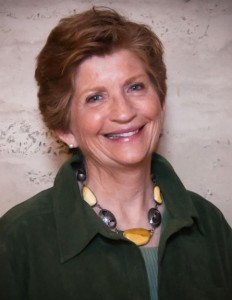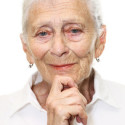The last time I saw her was on her 91st birthday, nine days ago. My good friend Neil and I had driven to where his mother Frances was in rehab, after a bout with pneumonia had put her in the hospital a week or so before. I had sent flowers, as I did for birthdays and Mother’s Day over the years. You see, I lost my mom when I was 23 and have been adopting everyone else’s mother ever since. And I had adopted Frances.
Neil was our intermediary in our mutual admiration. I ended all my conversations with “Give my love to Frances” and she would always ask, “How’s Sharon?”
I admired Frances so. She and her siblings were orphans, and had grown up in an orphanage somewhere near New York. At our lunches out, she would recount how fortunate she was because one of her teachers at the home loved the arts and took enough interest in Frances to take her to different performances. Eventually that would land her an audition with Martha Graham, performing a dance piece she had written and choreographed herself. She would go on to win a scholarship to New York’s famed Neighborhood Playhouse where she’d learn to act alongside yet-undiscovered Gregory Peck, Eli Wallach and Tony Randall, among others.
In time, she met and fell in love with a man who went off to war in the Pacific. While she waited for his return, she became–somehow–one of the first women employed by IBM in a project involved with those ‘newfangled’ things called computers. She’d eventually marry her war hero-turned-stockbroker and have two children. She’d lose her daughter at an early age and her husband in the 1990s.
That’s when I met Frances, Neil’s mother. A widow, living in Florida.
To me, her past could only be a series of stories told over lunch. And when Neil let her know I had written a book, she said, “I have a book in me.” And she did.
Frances had trouble rebounding from the pneumonia and the doctors gave her a 4-in-10 chance of pulling through. After her birthday, she didn’t seem to have any fight left in her. Yesterday evening Neil called me to gently warn me that the end might be getting near.
I sat quietly and meditated, trying to find Frances and her energy in my thoughts. I saw myself holding her head gently between my hands, and felt her slipping away. I called Neil back and told him to stay close to her.
After midnight he called to say she had died in the ambulance, headed back to the hospital from the rehab center.
The energy I had felt when thinking about Frances was the same one I felt as I held my beloved Aunt Pat, my mother’s twin sister, three years earlier as she too slipped away, on the day before her 90th birthday. It was familiar … and peaceful.
I always loved hearing Patty’s stories about living in Miami during World War II, during the blackouts because of German subs off the coast of Florida. And about having trouble finding a small enough mechanic’s suit (she was a size 2) for her to work at the Firestone Tire place because all the men were off at war. We created some stories of our own, as in the time I picked her up in Dallas, TX, headed for Kentucky in a stick-shift van. Thirty miles later, she asked me why I was still in first gear. I had to admit that I had never driven that car before and that I didn’t know how to shift.
From Patty my thoughts moved on to my Aunt Elisabeth, my Uncle Arthur’s French widow, who I went to spend Christmas 2009 with and found a seal on the door of her Nice, France, apartment and a tag that said, “Enquête décès” (Death Investigation). She was 89.
Over long, multi-course dinners with exquisite wines, Elisabeth would tell me stories about being a teenager in Dijon, France, watching train after train moving east into Germany, knowing they were filled with Jews being moved “somewhere.” And, in hindsight, feeling totally guilty for having done nothing. And she’d cry as she talked about the 18- and 19-year-old, fresh-faced young American boys who, in wave after wave, would roll off the landing vessels at Normandy straight into the bullets of the waiting Germans. Giving their lives to save France.
The more I thought about these three women, the more I realized they had something in common. While they looked like any other octogenarian, their lives were vibrant and rich in their minds because of their stories. What they had done, what they had seen, and what they had learned.
It’s so easy to look at a small, thin woman in her 80s, wrinkled face, white hair coiffed or not, lively eyes but an unsure step … and dismiss her.
Yet the wealth of information available in such women’s minds about what’s important in life and what’s not; about how to navigate through difficult times, be it wars, economic depressions, loss of loved ones or whatever; and about how to find a sustainable lifestyle over the long term so that life can be relished, whatever the circumstances.
I look at their lifestyles. They each arrived in their 80s by very different paths. But at some point they had looked forward to their later years and made some choices, sometimes difficult ones. They had opted for circumstances “that worked for them.” They had found a housing solution for the duration that was stable. They had accumulated “things” that they loved over the years, but felt they needed very little more. They took great joy in what was new and what was different, without living in the past. They treasured every sunrise.
And they would share the richness of their lives with any who were truly interested. Otherwise, they were just little octogenarians moving almost invisibly through life.
When someone like Frannie dies, we automatically ask about those she left behind, how they feel, how they are coping, and isn’t it a shame she’s gone.
Anyone who’s smart will ask another question: “What is it about life that I can learn from someone who has accumulated such a wealth of knowledge over her lifetime?”
Most of the pearls of wisdom you’ll find in their stories.
xxxxx
 Sharon O’Day is an expert in global finance and marketing with an MBA from the Wharton School. She has worked with governments, corporations, and individuals … yes, she was the secret ‘weapon,’ if you will, behind many individuals in high places. At age 53, she lost everything: her home, her business, everything. Since then, Sharon has interviewed women and done extensive research to understand how that could have happened, especially with her strong knowledge of numbers and finance.
Sharon O’Day is an expert in global finance and marketing with an MBA from the Wharton School. She has worked with governments, corporations, and individuals … yes, she was the secret ‘weapon,’ if you will, behind many individuals in high places. At age 53, she lost everything: her home, her business, everything. Since then, Sharon has interviewed women and done extensive research to understand how that could have happened, especially with her strong knowledge of numbers and finance.
The surprising answers will be shared in her upcoming book “Money After Menopause.” Today her focus is to show women how to reach financial security for the long term. She has developed a step-by-step plan to get past all the obstacles that keep women broke and scared … and from reaching the financial peace of mind they so deserve.







